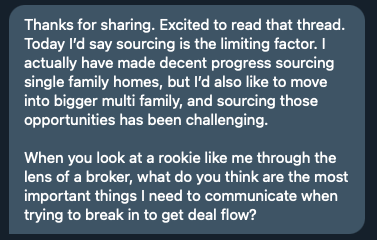
THREAD: A brief history land ownership and taxes
Our legal principles of ownership derive from English common law, dating back to feudal times.
It's fascinating history and important background to understand title issues. 👇
Our legal principles of ownership derive from English common law, dating back to feudal times.
It's fascinating history and important background to understand title issues. 👇

1) After the Norman Conquest, William the Conquerer declared that all land belonged to the king.
He gave his supporters, who became barons, ownership over vast parcels of land (a fiefdom). In return, they provided knights for military service in proportion to their holdings.
He gave his supporters, who became barons, ownership over vast parcels of land (a fiefdom). In return, they provided knights for military service in proportion to their holdings.

2) There were two ways for a baron to provide knights:
a) use the money earned from the land to hire mercenaries
b) carve out of their land a smaller fiefdom, known as a manor, to a knight in exchange for service
In this way, a feudal hierarchy was established.
a) use the money earned from the land to hire mercenaries
b) carve out of their land a smaller fiefdom, known as a manor, to a knight in exchange for service
In this way, a feudal hierarchy was established.
3) A knight was a lord of their land (hence "landlord"), but also a tenant of their superior lord (the baron). The king, without superior, was the lord paramount.
At the bottom were serfs, who paid rents to the lord in exchange for the right to cultivate the land.
At the bottom were serfs, who paid rents to the lord in exchange for the right to cultivate the land.
4) In 1086, William commissioned a survey of the kingdom to establish who owned what, for tax purposes.
This registry became known as the Domesday Book. It was first of its kind and the last in England for the next 800 years.
This registry became known as the Domesday Book. It was first of its kind and the last in England for the next 800 years.
5) The system evolved to favor monetary payment of taxes.
Nobles wanted to avoid military service and let the king hire knights.
This made it much easier for the king to raise taxes.
Eventually, limiting feudal payments became a major motivation of the Magna Carta.
Nobles wanted to avoid military service and let the king hire knights.
This made it much easier for the king to raise taxes.
Eventually, limiting feudal payments became a major motivation of the Magna Carta.
6) How does this relate to the modern era?
Well, land ownership was traced through the hierarchy of grants, all the way to the king. For example, the baron granted to the knight, and the king granted to the baron.
This is where we get our concept of title chain.
Well, land ownership was traced through the hierarchy of grants, all the way to the king. For example, the baron granted to the knight, and the king granted to the baron.
This is where we get our concept of title chain.
7) Additionally, our tax system is unchanged.
In the 1100s, a knight paid rent to the baron, who paid tax to the king.
Today, a tenant pays rent to the landlord, who pays property tax to the government.
In the 1100s, a knight paid rent to the baron, who paid tax to the king.
Today, a tenant pays rent to the landlord, who pays property tax to the government.
• • •
Missing some Tweet in this thread? You can try to
force a refresh








